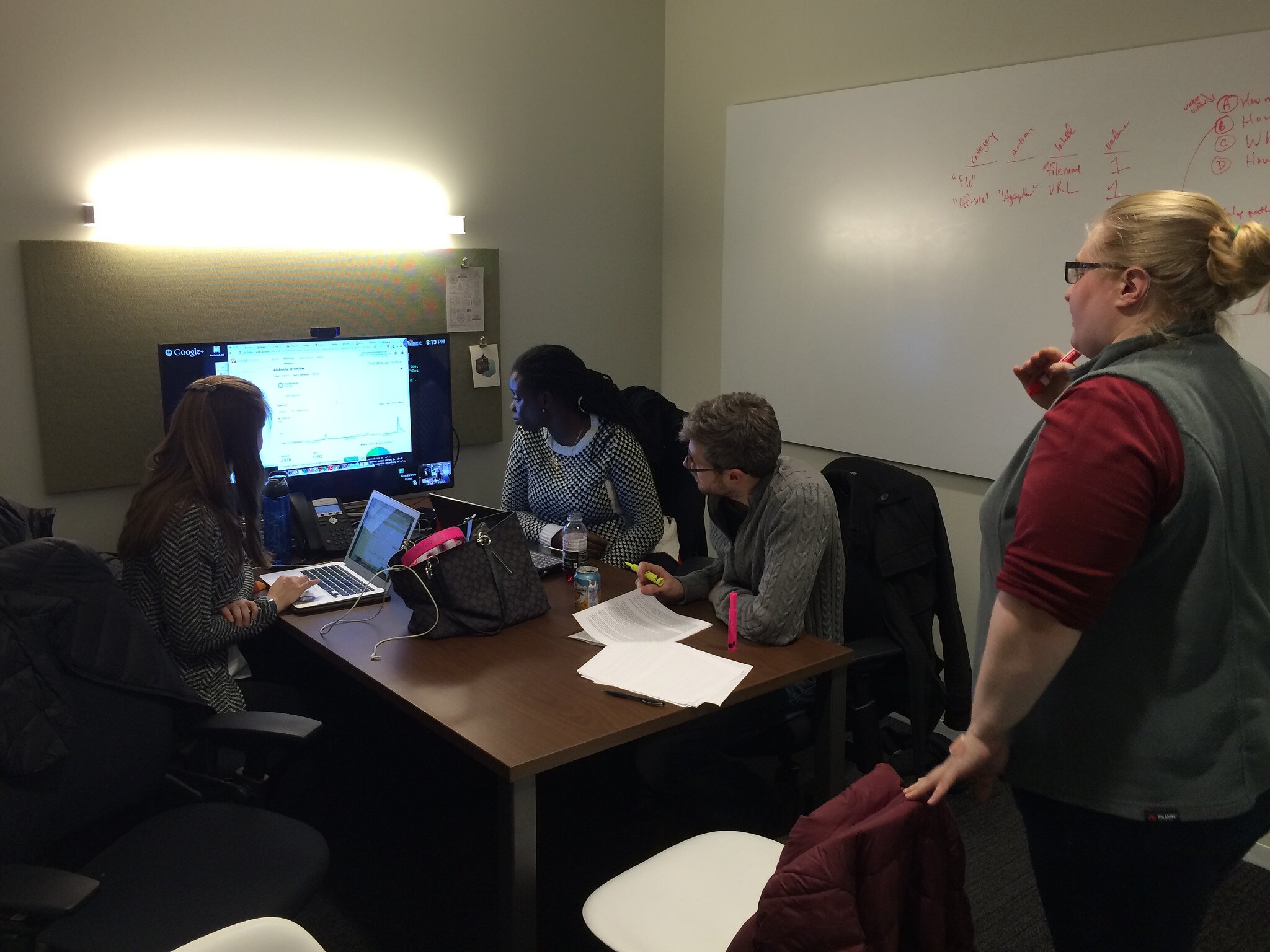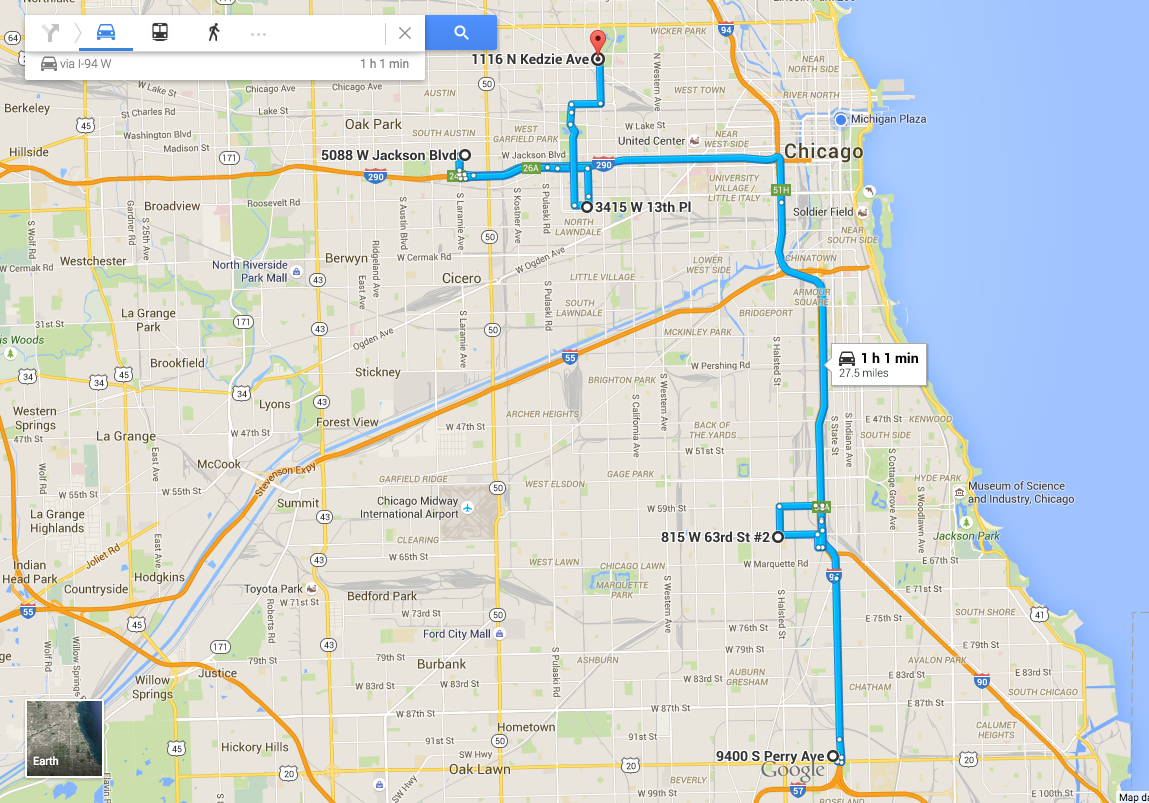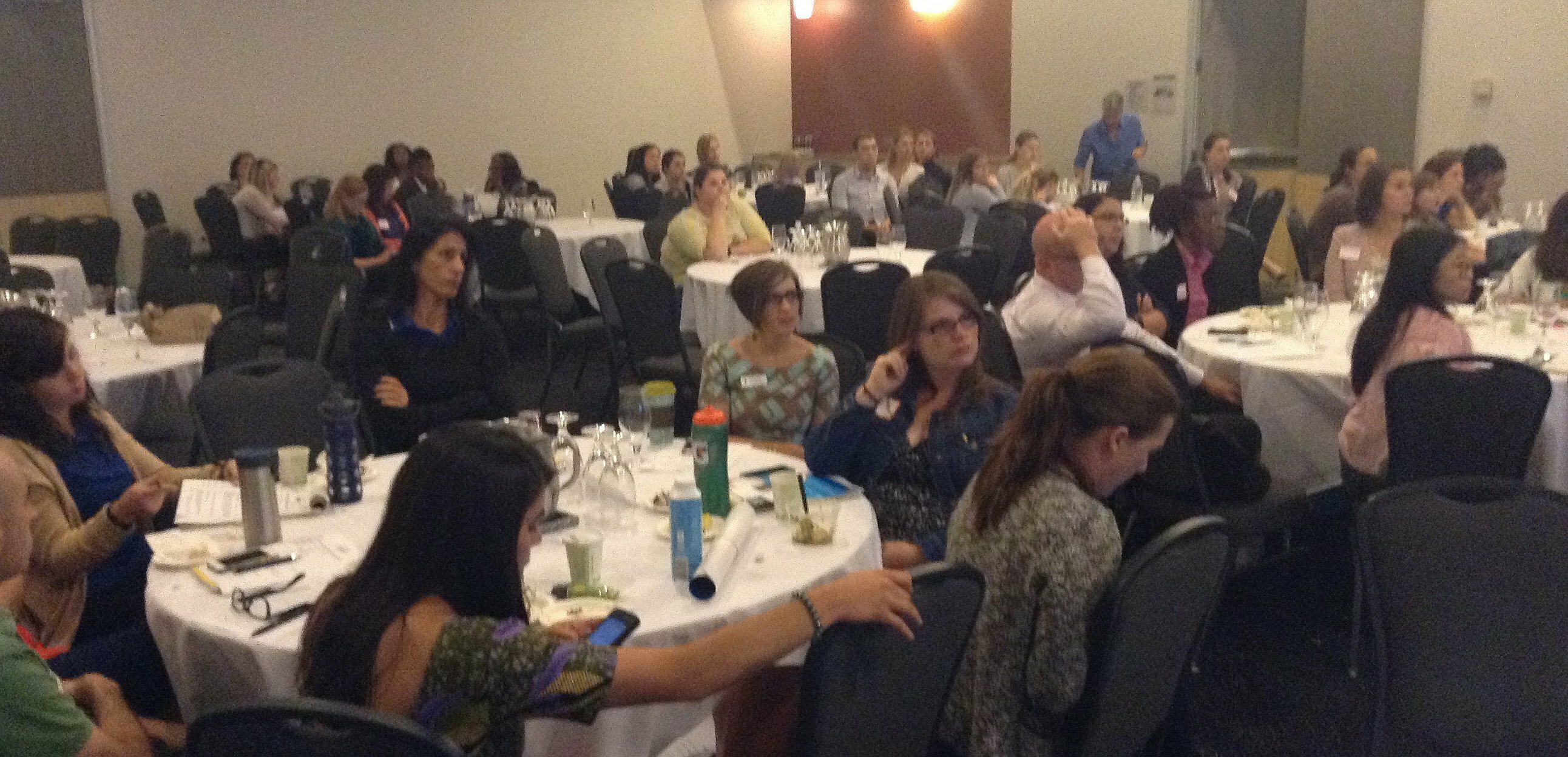This is the first in a series of posts about takeaways learned from National Day of Civic Hacking in Chicago. These posts will highlight problem sets, current efforts, and how to get involved in future efforts.
Of all the topics talked about during National Day of Civic Hacking, none got more attention and conversation going than the idea of building an app to help the needs of food pantries.
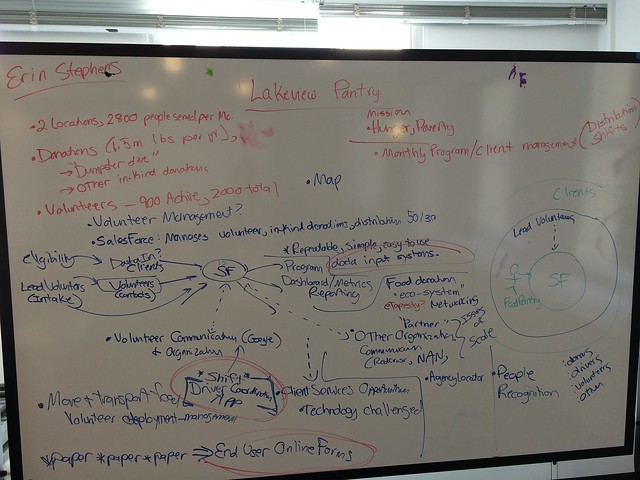
Notes taken during the food pantry session during National Day of Civic Hacking
In this takeaway post, we’ll describe the problem set, current data, current projects, and possible next steps in creating a tool that helps to support the work of the food pantries.
Problem Set:
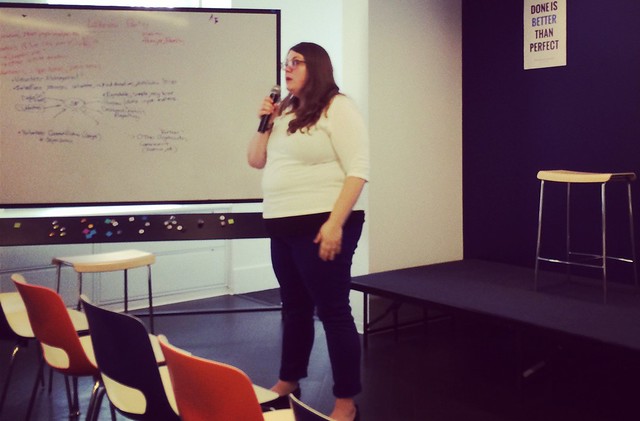
To start off, here’s Erin Stephens from Lakeview Pantry describing her challenges in her role as Director of Volunteers at Lakeview Pantry.
We can break this down into three main problems:
Volunteer Management:
Lakeview Pantry has about 2000 people on their volunteer list, 900 of which are active. The biggest volunteer management problem is making sure that they have enough volunteers to cover food distribution shifts. Additionally, they also need to manage the truck drivers – which provides it’s own unique challenges.
Logistics:
Lakeview Pantry receives food donations from a variety of resources including grocery stores and the Greater Chicago Food Depository. The pickup of these items has to be sorted out on a regular basis. In addition, the pantry has limited space. Lakeview Pantry must keep in mind how much room they currently have on the floor before accepting donations.
Food Supply Management:
This also raises a bigger point. How can we best recover excess food from restaurants and grocery stores across the area in order to maximize the amount of food that can be distributed to food insecure individuals? Some pantries, like Lakeview, can’t accept cooked meals because they don’t have a kitchen. Soup kitchens can serve cooked meals, but may not have the storage capacity of the pantries.
Current Data:
Here are some current data sources that may be useful for tackling this problem:
- Map of Grocery Stores (data.cityofchicago.org)
- National Food Insecurity Map (Feeding America)
- Research and Studies on Food Insecurity (Greater Chicago Food Depository)
Current Efforts:
PantryPickup.org – Code for Boston
The Pantry Pickup application has two goals: 1) helping citizens find and make donations to food pantries in their neighborhoods and 2) allowing food pantries to request or “register” for food needs specific to the communities they serve. Originally built during the Random Hacks of Kindness Hackathon in Boston as part of the National Day of Civic Hacking in June 2013, Pantry Pickup uses a hand-researched database of 500+ food pantries in eastern Massachusetts to provide location and availability data to prospective food donors. For next steps, we’re conducting a user research effort with pantry operators to help us understand how we can best support their food inventory needs.
Pantrytrack.com – MidOhio Foodbank:
With the primary goal of fighting hunger by allowing Pantry Staff and Volunteers to maximize service to their clients. Pantrytrak tries to do this by:
- Minimizing paperwork and improve reporting accuracy
- Simplifying the registration and “check-in” processes
- Linking Volunteers, Donors, Suppliers, and Food Banks directly to the needs of the clients being served
Food Pantries and Food Banks will benefit from the accurate and timely reporting. They can use this information to:
- Better understand the client needs in real-time
- Develop a true un-duplicated count of hungry families/persons in given service area
- Use this data to drive advocacy efforts and inform policy makers and stakeholders in the fight against hunger
Glean – NDoCH Chicago ’14:
Glean is an app project idea developed during National Day of Civic Hacking in the Chicago Loop designed to help food pantry’s get a sense of resources available at restaurants, grocery stores and other vendors. Here’s the team explaining the app below.
Next Steps:
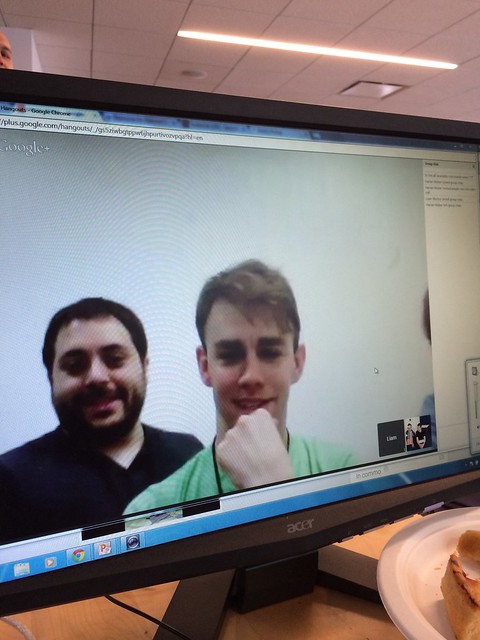
Hack Food Insecurity Working Group
Because there are so many efforts being worked on around the nation, we wanted to get everyone talking in order to kick off a collaborative process. If we have a pantry finder from Code for Boston, do we really need to re-create it? No, we simply need to redeploy that part of the code. However, currently we aren’t talking with everyone involved. This Google Group is a good ‘first step’ towards communicating and linking efforts.

